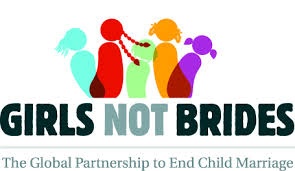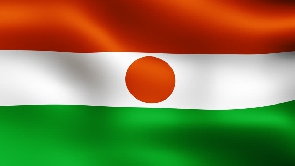Today June 16, 2015 marks the annual International Day of the African Child; an event instigated by the African Union in 1991 to commemorate the 1976 Soweto massacre of hundreds of schoolchildren protesting about failing education standards.
This year’s African Child Day is marked on theme “25 Years after the Adoption of the African Children’s Charter: Accelerating our Collective Efforts to End Child Marriage in Africa”.
Read the full Press Statement below.
International Day of the African Child (16 June, 2015): Girls Not Brides highlights positive efforts across the African continent to reduce child marriage and calls for renewed action to end a practice which affects the lives of millions of African girls
Background:
Tuesday, 16 June 2015 is the annual Day of the African Child, an event instigated by the African Union in 1991 to commemorate the 1976 Soweto massacre of hundreds of schoolchildren protesting about failing education standards.
The theme chosen by the African Union to commemorate Day of the African Child 2015 is “25 Years after the Adoption of the African Children’s Charter: Accelerating our Collective Efforts to End Child Marriage in Africa”.
Once a taboo issue, child marriage has finally been recognised by the African Union and many African governments.
In addition to a regional campaign to end child marriage and the increasing number of national initiatives, more African leaders are committing to end the practice. It is now time for them to walk the talk and translate their declarations into actions.
Girls Not Brides is calling on all African governments to develop and implement national strategies and action plans that are comprehensive and well-resourced.
These should include initiatives to empower girls, mobilise families and communities as agents of change, provide adequate services (particularly health, education and justice services), and provide legal frameworks that protects girls from marriage and its negative consequences. They should also work closely with civil society and other actors to protect all girls at risk and support married girls.
The impact of child marriage in Africa:
•Globally every year, 15 million girls – many of them African - become child brides before they are physically or emotionally mature enough to be wives or mothers. They join the swelling ranks of 750 million women alive today who became brides before the age of 18
•Child marriage is a harmful traditional practice which robs girls of their education, their health and their future – many child brides become mothers before their bodies are physically capable of carrying a baby safely to term, resulting in increased risk of injury and even death, as girls who give birth under age 15 are five times more likely to die than young women in their early twenties
•Millions of child brides drop out of education – in Malawi, two thirds of women with no formal education were child brides, whilst only 5% of child brides had secondary or higher levels of education
•Africa is home to 15 of the 20 countries of the world with the highest rates of child marriage – all African countries face the problem of child marriage to a greater or lesser degree, whether they experience child marriage rates as high as Niger’s (76%) and Central African Republic’s (68%), or at the lower end of the scale, such as Algeria’s (2%)
•The persistence of child marriage has consistently hampered African countries’ efforts to achieve six of the eight Millennium Development Goals (those to eliminate extreme poverty; to achieve universal primary education; to promote gender equality; to reduce child mortality; to improve maternal health; and to combat HIV/AIDS)
•Projections on child marriage in Africa are alarming. Escalating population growth in the region is set to exacerbate the problem to the point where, if unchecked, the number of African child brides is set to double by 2050. Tackling child marriage in Africa:
In recent years, political leaders, civil society and the donor community have increasingly acknowledged the need to tackle child marriage in Africa. A small, yet growing, number of African governments are developing national strategies to end child marriage.
Civil society organizations are mobilizing as well. Brought together by Girls Not Brides: The Global Partnership to End Child Marriage, hundreds of African GRASSROOTS organisations are coming together, sharing knowledge and best practice and working together on joint programmes and advocacy initiatives to address the practice, with new streams of funding from concerned donors.
If child marriage is to end, changing laws and policies, and advocating for additional resources will not be enough unless accompanied concrete action.
To emphasize the urgent need for immediate action to end child marriage in Africa, Girls Not Brides will be encouraging supporters to endorse its call to action by tweeting #EndChildMarriageNOW!
Press Releases of Tuesday, 16 June 2015
Source: Bartley Robbs Communications
Girls not Brides marks International Day of the African Child
 Girls not bride
Girls not bride












